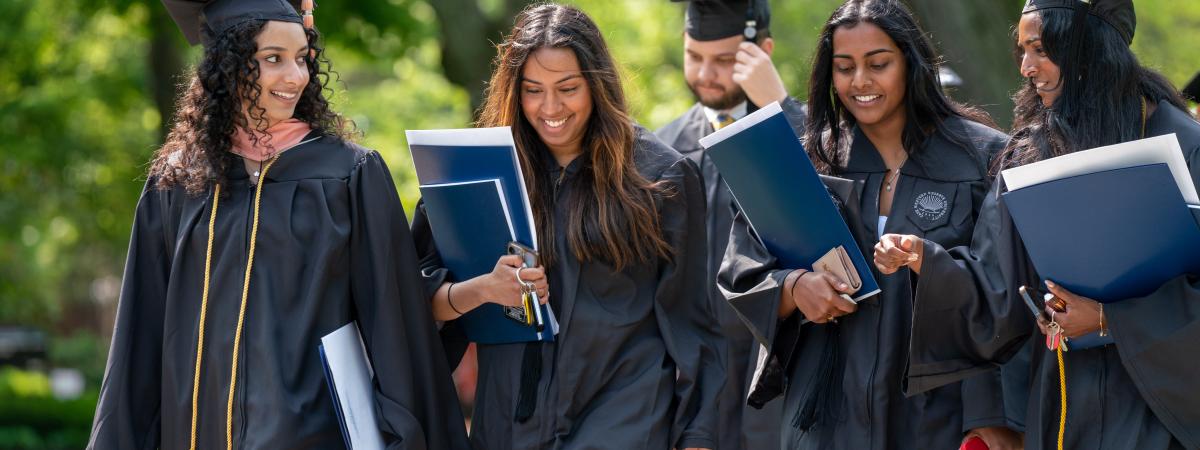The sequence of courses that undergraduates complete to satisfy the Written, Oral, and Multimodal Communication (WOMC) component of the Unified General Education Requirements (UGER) ensures that students have multiple opportunities to compose texts that will contribute to their academic, civic, and personal growth.
By the time they complete the WOMC sequence, students will be able to:
- Identify, analyze, and respond appropriately to the contexts, audiences, and purposes of a variety of writing/communication tasks (rhetorical awareness);
- Apply critical, creative, and analytical skills to describe and evaluate relevant questions or problems (critical thinking);
- Use effective research methods to discover and evaluate credible, relevant, and diverse sources that are appropriate for the writing/communication task (information literacy);
- Contribute to scholarly conversations among diverse people and perspectives (authorial agency);
- Develop successful composing processes, including strategies for reading, responding, drafting, collaborating, revising, editing, and reflecting (composing processes); and
- Compose effective written, oral, and multimodal texts that address the expectations for the task, as appropriate to the genre and discipline (mechanical & stylistic agility).
Each course in the WOMC sequence works toward these outcomes in ways that suit the topic, discipline, and course tasks. Consult individual course syllabi for specific learning outcomes.
Academic Inquiry Seminars (AIQS), the first course in the WOMC sequence, are taught by the Writing Program and have a common set of learning outcomes, which build toward the programmatic WOMC outcomes listed above. In AIQS, students focus on entering academic conversations, engaging with diverse ideas and audiences, and developing strong writing processes.


